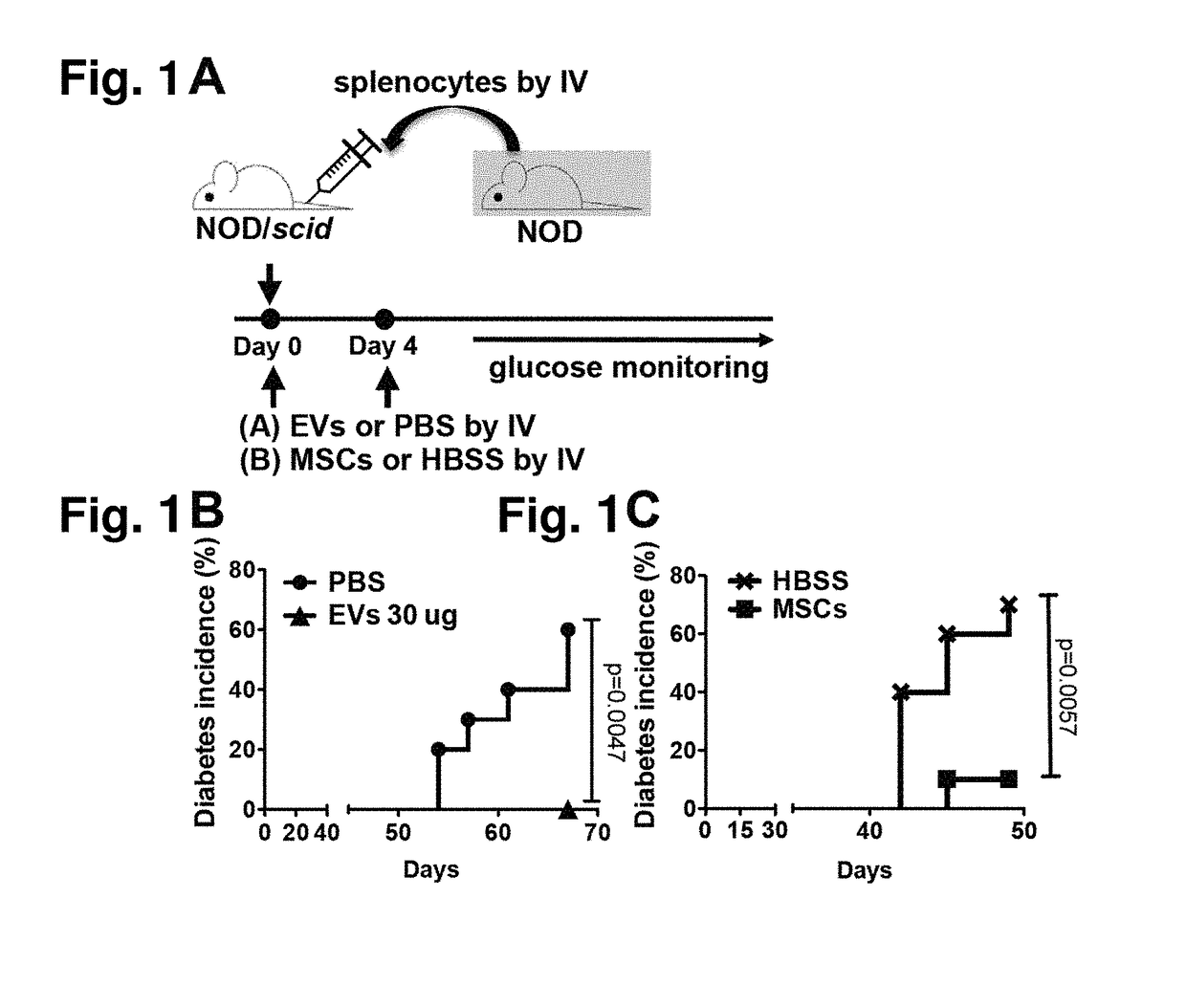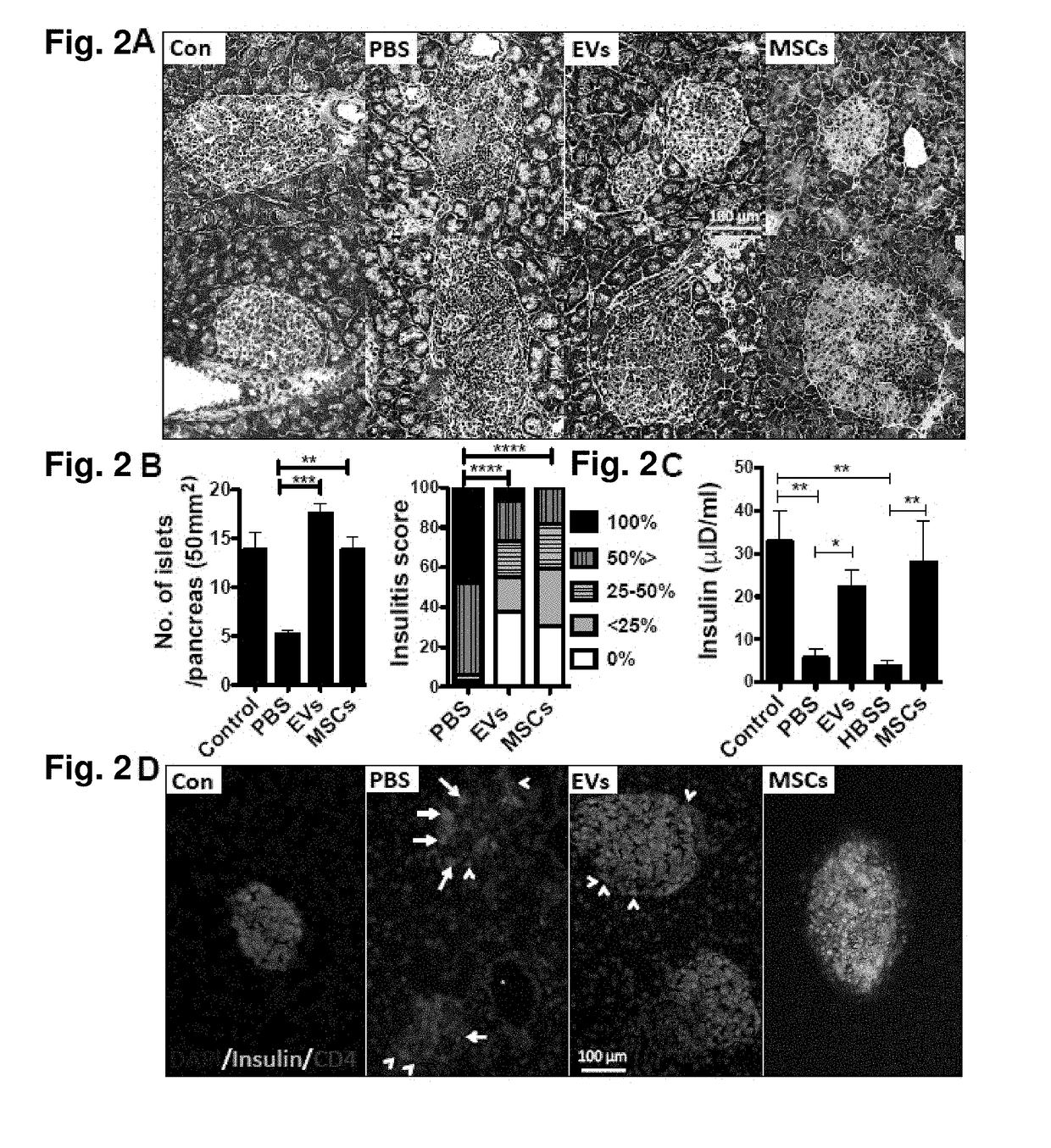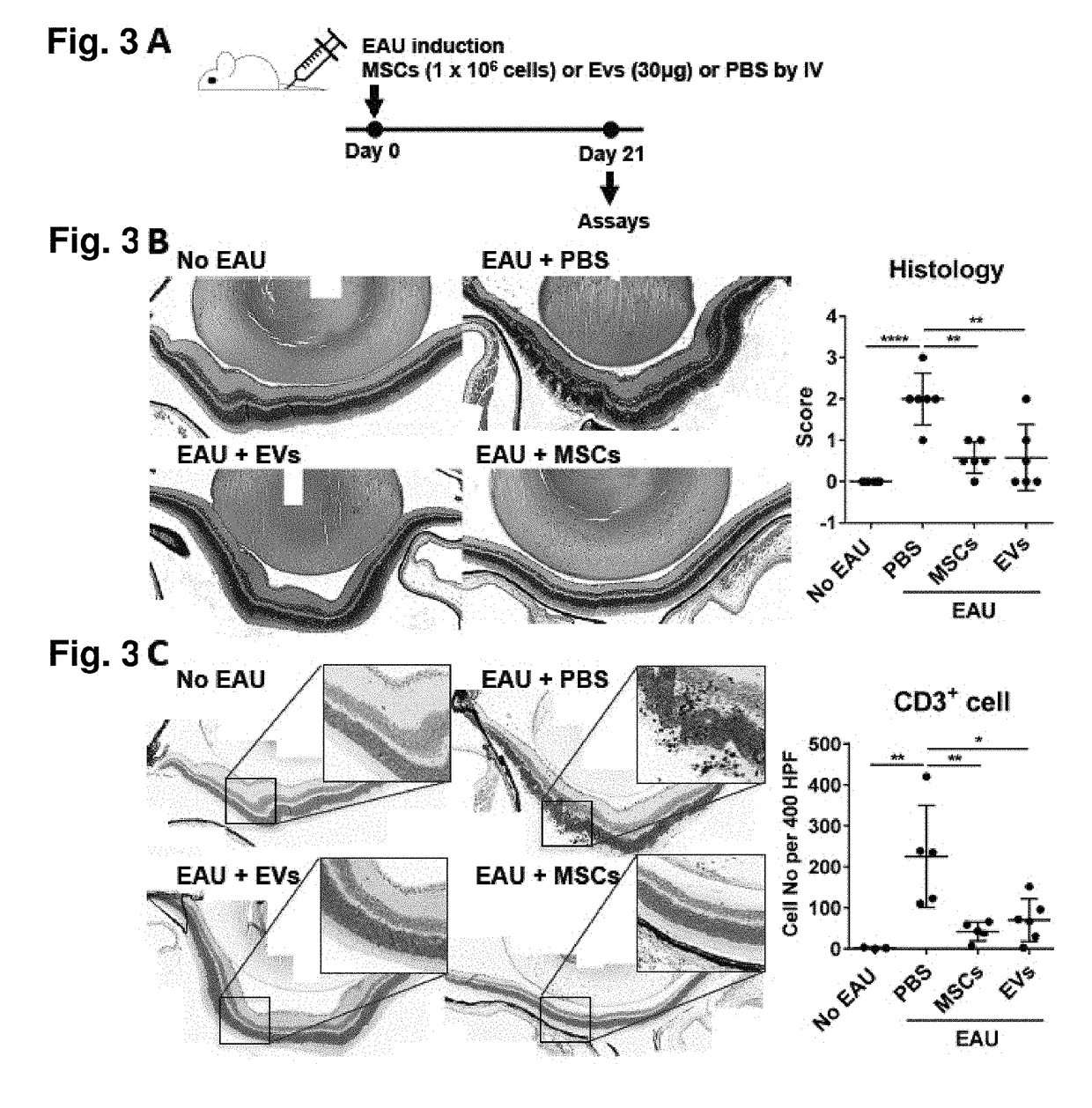Mesenchymal Stem/Stromal Cell-Derived Extracellular Vesicles And Uses Thereof In Autoimmune Diseases
a technology of extracellular vesicles and mesenchymal stem cells, which is applied in the field of extracellular vesicles, can solve the problems of long-term safety of msc administration, unclear whether extracellular vesicles derived from msc are also potentially effective in modulating immune responses, and embolism and death in mice, so as to avoid variation in therapeutic efficacy and clinical translation success, high levels of tsg-6
- Summary
- Abstract
- Description
- Claims
- Application Information
AI Technical Summary
Benefits of technology
Problems solved by technology
Method used
Image
Examples
example 1
Materials and Methods
[0056]The present example presents the methods as well as a description of materials employed throughout the examples.
[0057]Extracellular Vesicles Derived from Specifically Defined Activated Mesenchymal Stem / Stromal Cells:
[0058]MSCs were incubated in a chemically defined protein-free medium, which activates MSCs to increase therapeutic proteins, including TSG-6, and also provides a stable environment for producing EVs. A protein-free medium for culturing MSC's generally is described in Kim et al., 2016, which is specifically incorporated herein by reference.
[0059]The EV-treated mice showed the preserved islet function, but they still showed a decreased β-cell mass in association with insulitis. Therefore, additional EV treatments might be required to prevent the onset of disease. Optimization of any frequency injection and dose to maintain any long-lasting immunomodulation effects of EVs will be developed. EVs are highly heterogeneous depending on the cellular s...
example 2
MSC-Derived EVs Delay Onset of Type 1 Diabetes (T1D) In Vivo
[0084]The present example demonstrates the immunosuppressive capacity of the specifically defined MSC-derived EVs in vivo. In addition, the immunosuppressive effect of the present preparations in animals with T1D is shown.
[0085]To induce an adoptive transfer T1D model, splenocytes isolated from 12-week-old female NOD mice were intravenously infused into 7-week-old female NOD / scid mice (FIG. 1A). To test the effects of MSC-derived EVs, either 1) MSC-derived EVs (30 μg containing 15×109 EVs per mouse or a vehicle control (PBS) was injected, or 2) MSCs (1×106 cells per mouse, donor #6015, the same lot of MSCs from which EVs were produced) or their vehicle control (HBSS was injected into tail vein right after adoptive splenocyte transfer. Mice received an additional treatment at day 4 as shown in FIG. 1A. Recipient NOD / scid mice were monitored for hyperglycemia twice a week, and diabetes development was defined as the mouse hav...
example 3
MSC-Derived EVs Prevent Development of Uveitis
[0086]The present example demonstrates the utility of the invention for providing a treatment for human endogenous uveitis.
[0087]Experimental autoimmune uveitis (EAU) is an animal disease model of human endogenous uveitis was used. This model can be induced in susceptible animals by immunization with retinal antigens (Ags). Ocular antigens (Ags) such as uveal melanin and proteins involved in its metabolism, like retinal arrestin (retinal soluble antigen or [S—Ag]), inter-photoreceptor retinoid-binding protein (IRBP), and recoverin, are used to immunize animals so as to induce uveitis.
[0088]Several animal models of uveitis have been described. Endotoxin induced uveitis is another useful model for anterior uveitis, which is not an autoimmune process and is triggered by injection of bacterial endotoxin (lipopolysaccharides) resulting in a rapid short lasting uveitis.
[0089]Uveitis is a general term used for the inflammation of the uveal tiss...
PUM
 Login to View More
Login to View More Abstract
Description
Claims
Application Information
 Login to View More
Login to View More - R&D
- Intellectual Property
- Life Sciences
- Materials
- Tech Scout
- Unparalleled Data Quality
- Higher Quality Content
- 60% Fewer Hallucinations
Browse by: Latest US Patents, China's latest patents, Technical Efficacy Thesaurus, Application Domain, Technology Topic, Popular Technical Reports.
© 2025 PatSnap. All rights reserved.Legal|Privacy policy|Modern Slavery Act Transparency Statement|Sitemap|About US| Contact US: help@patsnap.com



